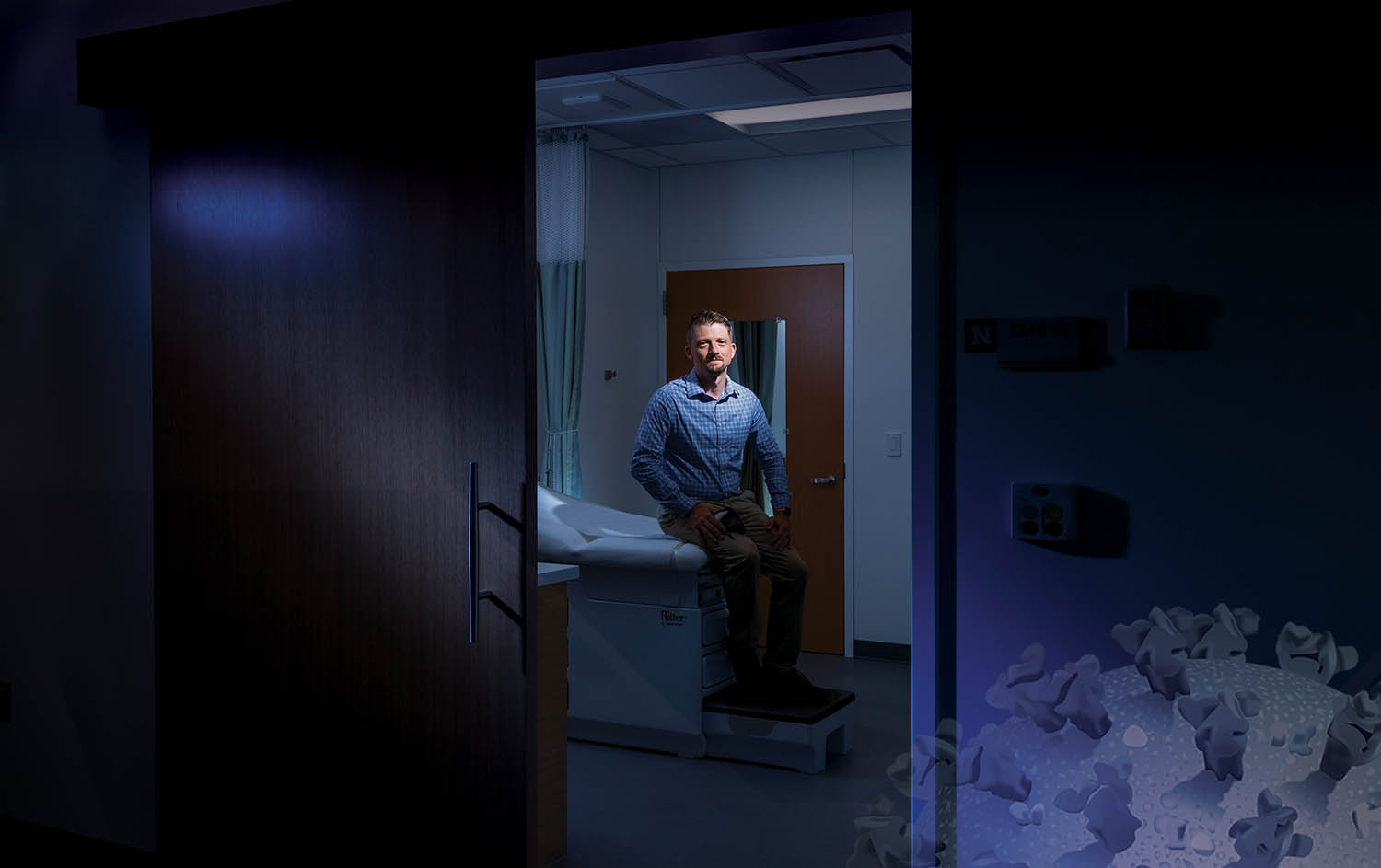The COVID-19 pandemic has illuminated health disparities stemming from diverse factors, including race, ethnicity and underlying health conditions.
Arthur “Trey” Andrews, assistant professor of psychology and ethnic studies, is examining two groups disproportionately affected by COVID-19: U.S. Latinos and people with histories of substance abuse. He’s collecting survey information about their willingness to seek testing, treatment and vaccines; ability to obtain other types of health care; and access to mental health services for COVID-related distress.
Andrews’ data helps state and local leaders develop public health interventions to reduce COVID-19 illness and mortality and guide people toward medical help. He hopes to shed light on the root causes of health disparities more generally – and help minimize future inequities.
“The idea is to understand the impact of not being able or willing to access services, testing, treatment or vaccination among high-risk groups,” said Andrews, associate director of the Minority Health Disparities Initiative. “The lessons we learn will result in strategies that help diverse populations live healthier, longer lives, even beyond COVID-19.”
Latinos have been about three times as likely to contract the virus and twice as likely to die from it. These trends stem from distrust of the medical establishment, fears about facing immigration status questions, and employment and housing situations that preclude distancing.
The lessons we learn will result in strategies that help diverse populations live healthier, longer lives, even beyond COVID-19.
Arthur “Trey” Andrews
People with substance abuse histories may not seek care to avoid legal trouble or judgment. They may face more severe COVID-19 outcomes, likely because of compromised cardiovascular function and marginalization of people with addiction problems.
Andrews is surveying about 200 members of each group every three months about their COVID-19 and health care experiences, including perceptions of discrimination. Their responses form the foundation of public health communication strategies encouraging evidence-based practices.
Andrews’ efforts led to development of a state-funded collaborative data and outreach program with the Lincoln, Nebraska, nonprofit El Centro de las Américas. El Centro organized clinics where at least 600 Latinos in Nebraska received vaccines who otherwise would not have. Andrews and El Centro are also advocating for innovative pop-up vaccine clinics where Latinos frequently visit or work.
The Office of Research and Economic Development’s COVID-19 Rapid Response Grant Program funded this project.
+ Additional content for Helping High-Risk Groups Cope with COVID
Nebraska news release: Andrews developing strategies to help high-risk groups navigate COVID

